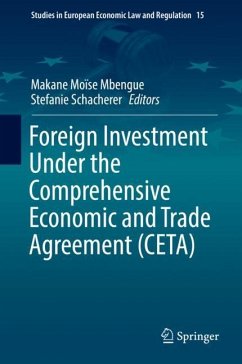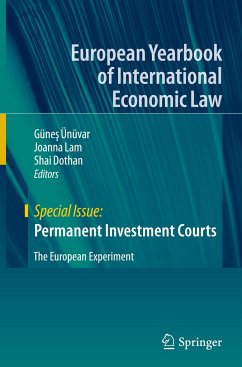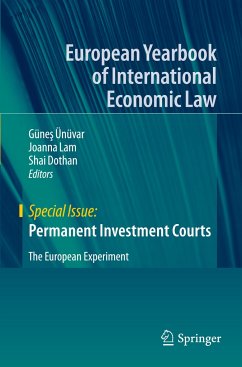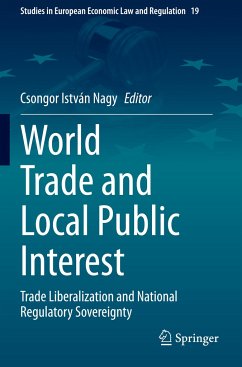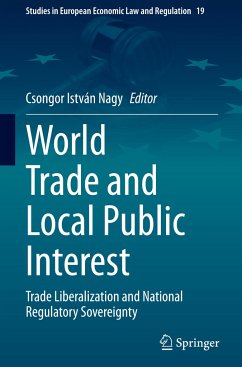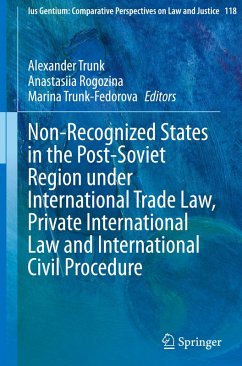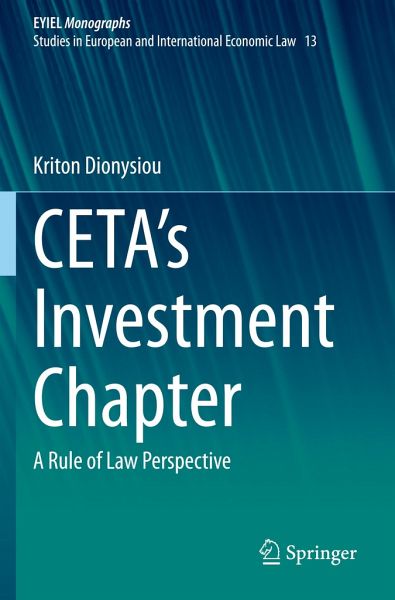
CETA's Investment Chapter
A Rule of Law Perspective
Versandkostenfrei!
Versandfertig in 6-10 Tagen
139,09 €
inkl. MwSt.
Weitere Ausgaben:

PAYBACK Punkte
0 °P sammeln!
This book provides a comprehensive account of the CETA Investment Chapter's ability to overcome the legitimacy crisis facing investment arbitration. To do so, it first examines the root causes behind the legitimacy crisis, ultimately arguing that it reflects a fundamental rule of law crisis within investment arbitration. In particular, it asserts that the normative standpoints of the legitimacy crisis form part of the rule of law, the uniting legal principle from which the legitimacy concerns stem. The book contends that the rule of law is not only the principal normative and causal assumption...
This book provides a comprehensive account of the CETA Investment Chapter's ability to overcome the legitimacy crisis facing investment arbitration. To do so, it first examines the root causes behind the legitimacy crisis, ultimately arguing that it reflects a fundamental rule of law crisis within investment arbitration. In particular, it asserts that the normative standpoints of the legitimacy crisis form part of the rule of law, the uniting legal principle from which the legitimacy concerns stem. The book contends that the rule of law is not only the principal normative and causal assumption on which the legitimacy concerns are based, but that it could also be utilized as a platform to evaluate the investment arbitration mechanism in CETA's Investment Chapter.
Based on this, the book evaluates CETA's Investment Chapter through the rule of law framework in order to provide a convincing account of the latter's ability to overcome the legitimacy crisis facing investmentarbitration. It concludes that CETA's Investment Chapter is unlikely to completely solve the legitimacy crisis simply because it is just a patchwork of reforms rather than a comprehensive reinvention of the substantive and procedural law of investment arbitration. Lastly, the book offers meaningful insights into the way the challenges presented by investment arbitration should be addressed.
The book is intended for academics researching international investment law and arbitration as well as for policy-makers focusing on reforming investor-state dispute settlement.
Based on this, the book evaluates CETA's Investment Chapter through the rule of law framework in order to provide a convincing account of the latter's ability to overcome the legitimacy crisis facing investmentarbitration. It concludes that CETA's Investment Chapter is unlikely to completely solve the legitimacy crisis simply because it is just a patchwork of reforms rather than a comprehensive reinvention of the substantive and procedural law of investment arbitration. Lastly, the book offers meaningful insights into the way the challenges presented by investment arbitration should be addressed.
The book is intended for academics researching international investment law and arbitration as well as for policy-makers focusing on reforming investor-state dispute settlement.




